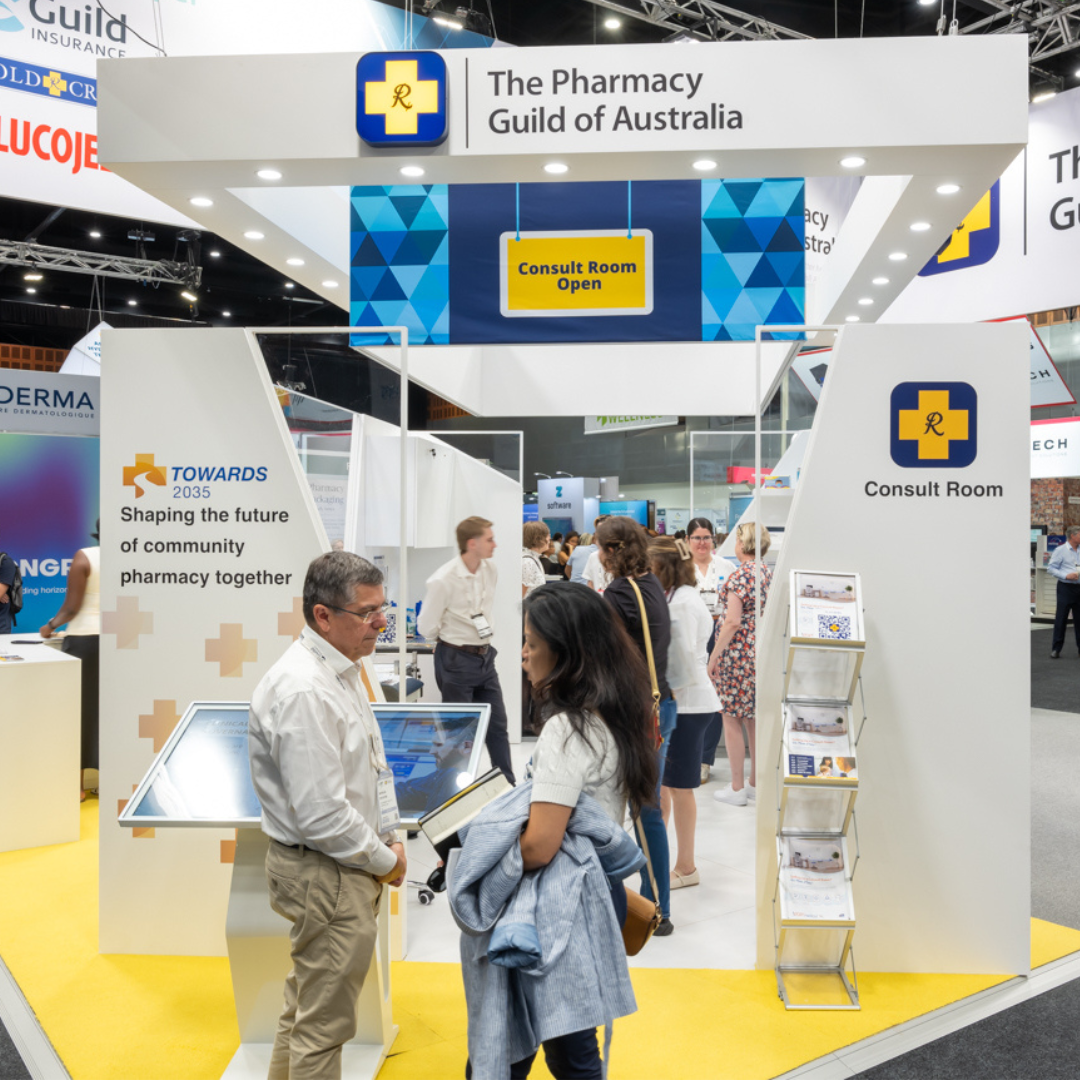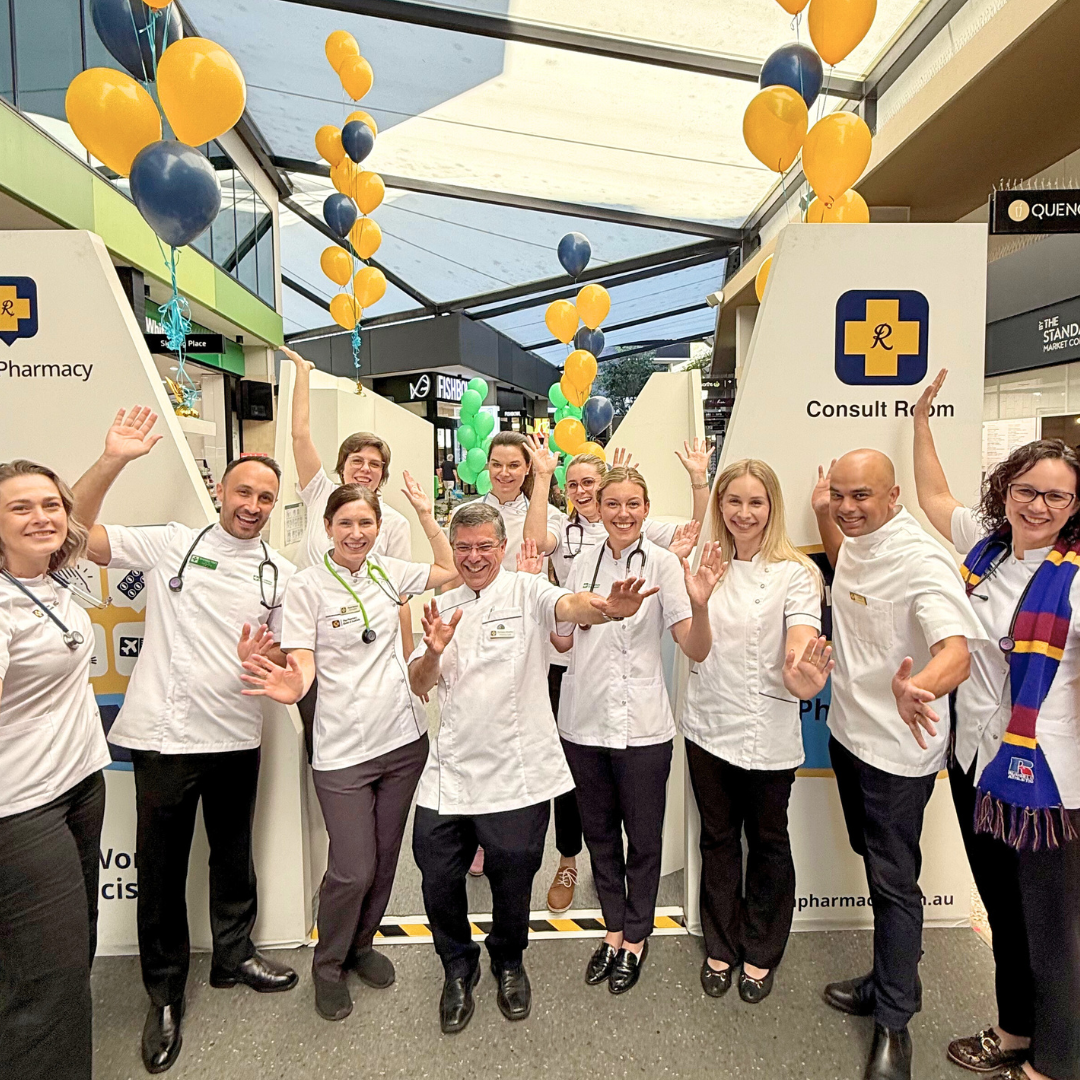Nick Efstathis is a pharmacy business owner and hormonal contraception prescriber, currently undertaking full scope training. With decades of experience and a passion for evolving pharmacy practice, he became involved with the Queensland Community Pharmacy Scope of Practice Pilot early on. Here, Nick reflects on the changing industry landscape, the importance of a future-focused mindset, and how the training has made his daily practice more interesting.
Can you tell us about your journey, and what drew you to the Scope of Practice Pilot?
"I just felt that this was the future and wanted to get on board early. The industry news kept saying ‘this is where we’re going,’ but no one quite knew what the journey would look like. I looked at what happened with vaccinations, and how it went from a pilot to business as usual in five years, and now it’s part of what we do every day. I think [scope services] will be the same, and I wanted to get in early.
I started with hormonal contraception training first to dip my toe in, and [now] I’m a prescriber for that. I’d already done a postgrad degree, so I knew what I was getting into. It’s challenging but rewarding... that's the beauty of it, you're learning something new after all these years, which is great. And it’s good to be able to do more for patients."
How has the expanded scope changed your view of your career?
"It’s made things fun again. The Pilot helped rekindle my interest in the clinical side of things, and it’s satisfying to be able to do more for patients. The consults and that one-on-one interaction are rewarding on both sides. When you’re talking to patients and dispensing, you’re mentally checking over things and using what you learned at uni, but no one sees that. With scope you can demonstrate your skills and show people how you can help. And [patients] love it because they feel listened to."
What do you think expanded scope brings to your business and community?
"The challenge of developing and growing a business is exciting. Until now, I’ve found growing a business more stimulating than the clinical side. Now with full scope, pharmacists can use our skills better. And that was always the driver; to try and make your business better, to look after patients and improve their health. Solving problems for patients is incredibly rewarding, and that’s what keeps me going.
It adds another level of service so patients get care faster. For us [as healthcare professionals] it’s about working together to improve patient outcomes. Having a good relationship with the doctors next door has been key. We’re not competing; we’re complementing each other... if something’s outside our scope, we refer on."
How did you prepare your business for expanded scope services?
"We planned carefully and made strategic decisions about how we would deliver services. Part of that was the hours we offered the services.
We started with after-hours appointments that would complement, not compete with, the doctors next door. And that seemed to work right from the beginning because we got people straight up. Don't think you have to do them all day, every day. Pick the times when you want, where your staff are available, and push people towards those. We’re still getting appointments every week, probably doing 3-15 hours a week, 20 hours at most. I'm sure over time we'll adjust the hours as the demand grows.
We trained our team, set up booking systems, and refined our processes. We use HealthEngine and MedAdvisor to manage appointments. I’m trained for hormonal contraception, and two other pharmacists are full scope trained and can do all the services. I’ve given them visibility over the calendar, and we manage bookings flexibly.
We also made sure the rest of the team understood their roles, so dispensing pharmacists still do their usual checks, and pharmacy assistants sometimes act as chaperones. Initially we also debriefed after every consult to refine our process. It’s all about making the service professional and seamless."
How have patients responded to the new services?
"Mostly very positive- we’ve done over 80 consults now, and the feedback has been great. We’ve had a lot of overseas patients who are familiar with the service and happy they can access it. There was one patient who expected a quick five-minute script renewal and wasn’t interested in a full consult, but that’s been the exception. People appreciate the time and care we provide, and we haven’t had any issues around pricing."
Now that the services have been made permanent, what do you hope the future of community pharmacy will look like?
"Some pharmacy models are going all-in on consult-style care. Overseas, you see pharmacies with entire floors dedicated to consult rooms and allied health. I think we’ll see more of that here in Australia - pharmacies becoming true healthcare hubs.
I see room for three types of pharmacists: clinical, dispensing, and managing. As businesses grow, we will see all three working in a practice. You might jump between those roles, but you need those three skills, and it’s quite difficult to swap between them. That’s where I think pharmacists have got to be careful- that when they're doing a consult, they get their head in the right mindset and aren’t disturbed. Pharmacists are very used to being disturbed, but in this situation you shouldn’t be because that’s when you might miss something. It’s what you miss that can be the problem, not what you get. It’s about listening, screening, and helping people live healthier lives."

Nick (left), speaking with a delegate at APP2025 about expanded scope of practice and The Guild's pop-up consult room (behind).

Nick (centre), celebrating World Pharmacy Day 2025 with prescribing pharmacists.

